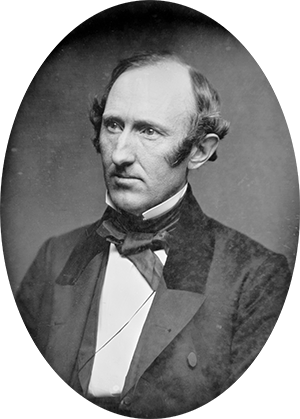Wendell Phillips (1811-1884)
Page Content
 Wendell Phillips, ca. 1855. (Courtesy of Library of Congress)
Wendell Phillips, ca. 1855. (Courtesy of Library of Congress)

“I have always thought that the first right restored to woman would be that of the full and unfettered control of all her property and earnings... Next in order of importance and time, comes the ballot. So it has always been with all disfranchised classes; first property – then political influence and rights; the first prepares for, gives weight to, challenges, finally secures the second.”
Phillips was a noted abolitionist and early advocate for women’s rights. A member of the free-produce movement, he refused to wear cotton or eat cane sugar since both crops were produced by slaves. In the 1850s, Phillips used his oratory and writing skills to build support for woman suffrage throughout his native New England. He was an active member of the National Woman’s Rights Central Committee, and a colleague of Susan B. Anthony. In advocating for women’s property rights, Phillips worked to upend the social order whereby women and girls were the living property of their fathers and husbands.
A vocal advocate for the Civil War, Phillips celebrated the Union victory and the passage of the 14th and 15th Amendments. Unusual for most white Americans of the era, he argued that those amendments also granted citizenship to Native Americans. He lobbied against using the military to dislocate indigenous peoples in the western territories, and accused the army of racial extermination. Phillips continued to support Native American land claims even after public opinion turned against him, and vocally advocated for an end to all U.S. Indian removal policies. In Phillips’ eyes, the rights of citizenship and voting were hollow without ownership of land and access to property.
Next:
Jeannette Rankin >